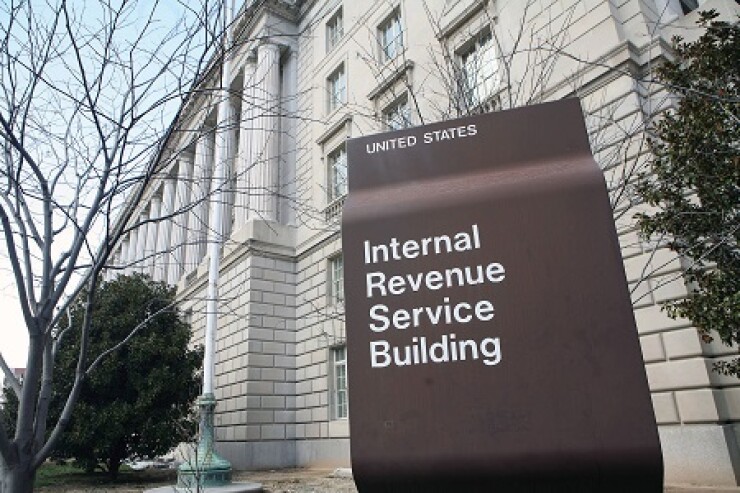
If a client were to ask which investment is more tax-friendly, ETFs would come out ahead of open-end mutual funds, even though both are governed and taxed as regulated investment companies.
The key difference is that ETFs routinely purge portfolios of holdings with large unrealized gains, while mutual funds seldom utilize this powerful tool, although they can.
Let’s look at an example. We’ll assume a fund (ETF, closed-end or mutual fund) has a position in XYZ that the fund bought for $100 many years ago. The XYZ position is now worth $1,000, with $900 of unrealized capital gains.
If the fund sells XYZ, the fund realizes a $900 gain that will be passed on to shareholders. If the fund gives $1,000 of XYZ rather than $1,000 in cash to a redeeming shareholder, no gain will be realized by the fund.
No Gain Triggered
This also has no negative effects on the redeeming shareholder, who would have the same amount of gain or loss as if they received cash. Thus, the fund has exited the shares while triggering no gain at the fund level nor increasing taxes at the fund-holder level.
As you know, ETFs are traded throughout the day, and at the end of the day, authorized market makers can redeem them for a slice of the fund’s portfolio. This redemption in kind can be used by the fund to rid itself of low-cost basis shares without any negative tax consequences.
If an index fund bought shares before the bull market began, it’s most likely sitting on shares it recently bought with small gains or losses, as well as shares bought long ago at prices much lower than today’s.
The fund/ETF is allowed to use a specific lot identification to declare that the shares they are distributing are those bought years ago, rather than being forced to use shares recently bought, as would be necessary under a last-in, first-out methodology.
Of course, if there are shares with unrealized losses, they wouldn’t be distributed, because the fund will forfeit any tax benefit from the loss by doing so.
Reserved for Large Redemptions
All mutual funds have the ability to make redemptions in kind rather than selling portfolio holdings and triggering gains. This ability has traditionally been reserved for times when the fund must meet a very large redemption or the underlying shares are so illiquid it would be best for all if shares were distributed rather than sold.
David Poppe, CEO of Ruane, Cunniff & Goldfarb and manager of Sequoia, rebuffed any criticism in a Wall Street Journal opinion piece by
The redemption mechanism built into ETFs can make them much more tax-friendly than an open-end index fund run side-by-side by the same manager.
Vanguard
Vanguard’s ETFs are set up differently than everyone else’s. They are not standalone ETFs; they are just another share class of the Vanguard open-end index mutual fund. This becomes a very important difference, because redeeming Vanguard ETF holders can leave with low basis shares owned by the open-end fund.
Thus, the Vanguard ETFs become a dialysis machine ridding the mutual fund portfolio of those pesky shares bought long ago at much lower prices. Vanguard has a patent on this setup that will protect the idea for another few years, then I’d expect everyone to rejigger their offerings to create a system as favorable as Vanguard’s is today.
Eaton Vance
Eaton Vance recently patented NextShares. NextShares are exchange-traded mutual funds that are something like a crossover between an ETF and an open-ended mutual fund. NextShares will redeem shareholders in kind.
Because of this, NextShares are promised to be more tax-efficient than a typical mutual fund run in the exact same manner. Eaton Vance reports they have a dozen other fund complexes that have indicated their intent to offer NextShares Funds by filing exemptive applications with the SEC and entering into preliminary agreements with NextShares Solutions.
ReFlow
ReFlow is a company started by billionaire Gordon Getty. The company offers to invest cash in a fund that needs to meet redemptions, then leave the fund with a basket of securities. As Reflow COO Alan Siegerma says in an April 2007 issue of Operations Management, the redemption in kind service allows a mutual fund to experience some of the advantages of an exchange-traded fund in that in-kind exchanges typically have a more favorable tax treatment than purchases and redemptions done directly with the fund.
ReFlow will eventually either wind up leveling the tax-playing field between ETFs and mutual funds or becoming the catalyst to force the government to remove IRC Section 852(b)6, which allows for redemptions in kind, because it’s losing too much revenue for the Treasury.





